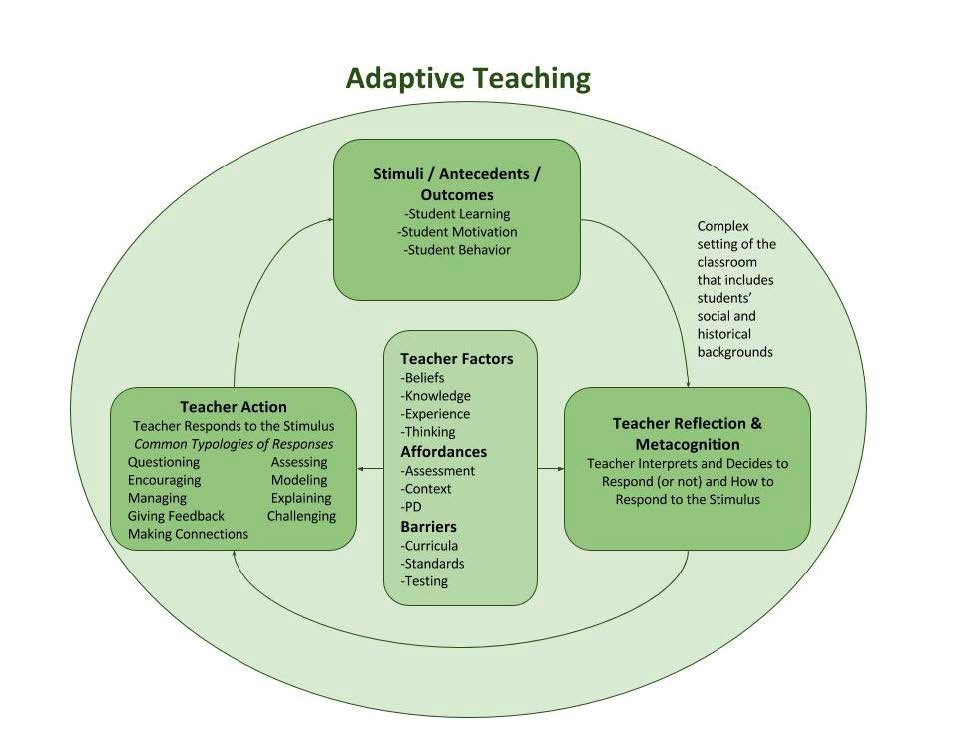
Classrooms are complex, unpredictable contexts. No matter how prepared teachers are, they cannot know with certainty what to expect from students on any given day. This unpredictability necessitates teacher flexibility. For decades, education scholars have studied teacher effectiveness—the attributes that make teachers effective. This research shows that exemplary teachers know their content well, have deep knowledge of pedagogy, they plan extensively, they provide clear instruction and directions, they use a variety of instructional methods, and more. However, these studies also repeatedly find that the most effective teachers are adaptive. That is, they carefully monitor classroom proceedings and respond to what occurs. When students get off task, they re-engage the students. When a student displays confusion or misunderstanding, the teacher reteaches. This cycle of teach, observe, act is central to what it means to be an effective teacher.
Despite this repeated finding that effective teachers are adaptive, there was little information about what adaptive teaching entails. How does it manifest in the milieu of the classroom? Nearly 20 years ago in my doctoral program, I worked with a graduate student research team that set out to study this phenomenon. The idea was that if we can better understand adaptive teaching—how and why teachers adapt their instruction—then we could better prepare the future teachers we teach. Through repeated study in numerous classrooms (hundreds of observations in dozens of classrooms along with interviews with the teachers we observed), we identified a typology of how and why teachers adapt their instruction. In addition, this research team, well after we graduated from our doctoral program, conducted a comprehensive review of the literature on adaptive teaching and related constructs (responsiveness, flexibility, etc.). This research synthesis along with our repeated study led to the following model that displays the processes and characteristics of adaptive teaching.

This line of research, which spans nearly two decades, helps teacher educators, education scholars, teachers, and school leaders. It is important to know that adaptive teachers have deep knowledge of their content, pedagogy, and their students. Adaptive teachers know that they must carefully monitor students and their work through observation, discussion, evaluation of work, and ongoing assessment. And they use this monitoring and their deep knowledge of content, pedagogy, and students to adapt their instruction to the specific situations and students they encounter. The more I study adaptive teachers, the more in awe I am of their ability to gracefully navigate the complexity of the classroom to provide just the right instruction to the students they work with, which, in turn, motivates me to optimally prepare the preservice teachers to enter the teaching profession.
This feature was written by Seth Parsons, professor in the Elementary Education, Literacy, and Teaching and Teacher Education Specialization programs within the School of Education at George Mason University. Please visit each of the program websites to learn more about the degree offerings within these disciplines.
